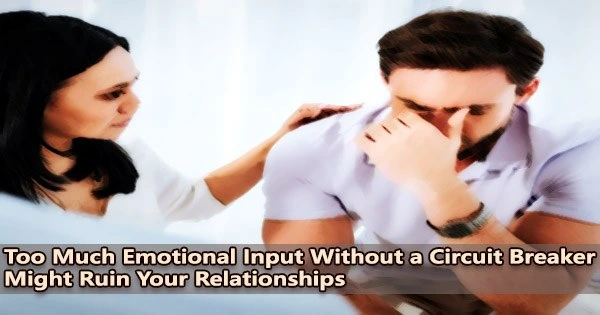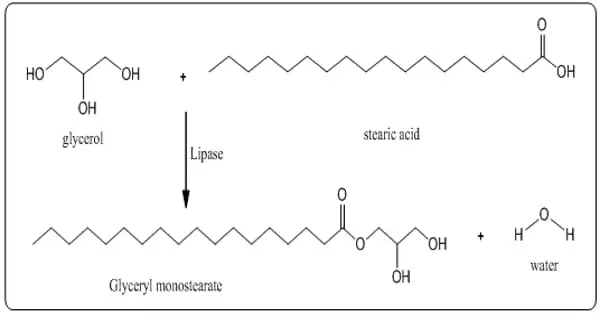“Emotional circuit breakers” is a term used to describe strategies and techniques that can help individuals regulate and manage their emotions when they are experiencing intense emotional responses. These circuit breakers can be thought of as a way to interrupt the cycle of negative emotions and help individuals regain a sense of control.
Ask almost anyone with a preoccupied attachment style when they are the happiest, and you are likely to get one of two answers: 1) when they are in love and a secure relationship or 2) when they are not in a relationship and have been out of one long enough that they are no longer grieving.
In other words, for people with preoccupied attachment styles, pleasure is an all-or-nothing issue; when it comes to relationships, they are either all in or all out.
But what about the time that preoccupied folks spend in ambiguous relationships when they don’t know what is going to happen?
Too often, they spend it feeling dysregulated, worried, anxious, and panicky. Because they lack a “emotional circuit breaker,” people with preoccupied attachment styles actually struggle to deal with ambiguity in relationships.
As Mario Mikulincer and his colleagues put it, for those with preoccupied styles, the attachment system becomes stuck in the “on position” and a chronic state of “hyperactivation” (Mikulincer & Shaver, 2003).
Look at it in terms of an electric circuit in the emotional brain. People with preoccupied attachment styles were generally brought up in households with an excessive amount of parental ambiguity or inconsistency. As a result, in order to prevent harm and enhance feelings of security, their emotional systems have evolved to recognize rejection as a threat.
As a result, the attachment system of the obsessed person will become hyperactivated in adulthood and begin to look for any indication that something might be wrong in love relationships. It could merely be a half-hearted smile, a stray look, or a delayed text response. The brain’s emotional circuits, especially the fear system, receive a significant amount of current from the influx of so much social information.
Strong and pervasive activation of the fear circuit floods the brain with norepinephrine and cortisol (and the physical body with adrenaline). People with concerned personalities will attempt to “fix” the issue by participating in behaviors aimed to obtain assurance and guarantees of love and protection because of this intense fear system activation. They might also strive to eliminate the uncertainty by attempting to corroborate their assumptions, such as their partner’s infidelity, lack of interest, or concern.
In this situation, the preoccupied person is likely to hurl allegations, display jealousy, or simply seem sad and pout in order to make a self-fulfilling prophecy. They believe it would be preferable to find out the unpleasant reality quickly than to be a sucker and live in emotional insecurity.
The issue is that these actions will probably make it more probable that the romantic partner will search elsewhere, which adds even more ambiguity to the circumstance. Only when the love partner offers enough assurance or the concerned person’s emotional circuits burn out and they quit the relationship in a fit of pain does the ensuing overload on the fear circuit come to an end.
If only the preoccupied person had an emotional circuit breaker.
People with stable attachment styles are able to control their negative thoughts and the current that flows through their emotional systems. They have the ability to lower their social radar so they don’t notice all those drawbacks.
They don’t have to ruminate for very long because there is less bad information entering the system. People with preoccupied attachment styles can’t turn down their social radar because the system becomes stuck in the “on position.”
But what about those with dismissing attachment styles? They can’t turn down the volume on their emotional systems either. But they can throw the figurative circuit breaker and turn off their fear circuits resulting in a “deactivation of the attachment system.”
Now they will have almost no social data coming in. So they can have whatever thoughts they want and stay relatively positive. Unfortunately, they also block out their romantic partner’s thoughts since they shut off their emotions and lack social data. However, they do not end partnerships due to emotional instability and exhaustion.
Getting an Emotional Circuit Breaker
The rejecting attachment analogy is helpful, but you can be sure that if you have a preoccupied attachment style, there probably won’t be a main switch that will turn off all the current going through your emotional system. But you can install a breaker box to turn off some troubling sub-circuits.
Here’s how:
- Identify your subcircuits. Subcircuits are like core beliefs. Some common ones are “they are supposed to be the one.” “I don’t have the right sized/shaped parts.” “They are interested in other people.” “I’m not good enough.”
- Once you identify your subcircuits, try challenging them with counterevidence.
- If the circuit doesn’t quiet down with counterevidence, try a “thought-stopping technique.”
- Instead of thinking endlessly of the past, focus on what you will do in the future.
- Turn off the “they are the one” circuit. If they were the one, you would happily be with them and would not be agonizing.
- Refuse to engage in second-guessing (If only.)
- Stop looking so hard and turn down your radar. If it is that big of a deal, the data will continue to present itself and get clear. You don’t have to go looking for it.
- Distract yourself. Direct your energy toward different circuits, like time with friends, your job, or your favorite hobby.
You might be able to withstand some of that ambiguity if you turn off some of your subcircuits and reduce the amount of emotional current coursing through your brain. And if you can accomplish that, you might be able to prevent damaging your relationships and frying your attachment circuits.
















